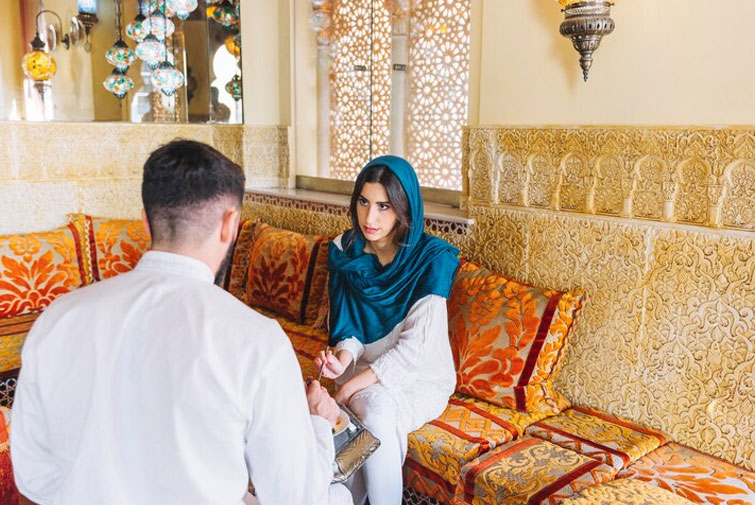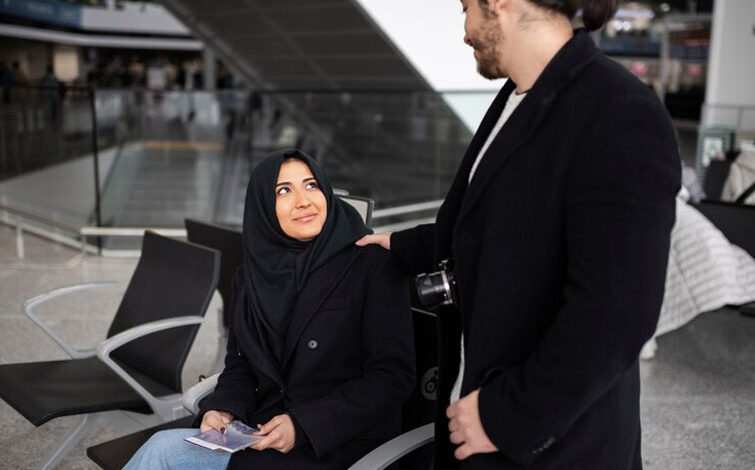Wazifa To Control Angry Husband – Dua for Husband Anger
Admin-haider
- May 21, 2021
- 24 min read
- 348 Views

Wazifa To Control Angry Husband – Dua for Husband Anger
In the sacred realm of Islam, the practice of Wazifa holds a profound significance, serving as a spiritual remedy for various challenges faced by believers. Wazifa, a form of supplication and devotion, is embraced by Muslims seeking divine intervention in their lives. In this context, the focus lies on a crucial aspect of marital relationships — the management of anger. This blog explores the Wazifa designed to control an angry husband, delving into its importance and the guidance it offers.
Maintaining a harmonious marital relationship is paramount in Islam, as it reflects the divine connection between spouses. Wazifa, with its roots deep in Quranic teachings, provides a channel through which believers can seek Allah’s guidance and blessings to navigate the challenges that may arise. As we embark on this exploration, remember that the journey toward marital bliss involves spiritual commitment, patience, and a sincere desire to strengthen the sacred bond between husband and wife.
Understanding Anger in Marriage:
Anger, a natural human emotion, can become a formidable challenge when left unbridled, particularly within the sacred institution of marriage. In this section, we delve into the common reasons that fuel anger in marital relationships, acknowledging the multifaceted nature of this powerful emotion.
Marriages may face anger stemming from various sources, including miscommunication, unmet expectations, or external stressors. Uncontrolled anger can have a profound impact on the relationship, leading to strained communication, emotional distance, and, in severe cases, the erosion of the marital bond. It is crucial to recognize anger as a potential disruptor and address it with wisdom, empathy, and the spiritual tools provided by Islam.
As we navigate through the understanding of anger in marriages, keep in mind that the Wazifa for controlling an angry husband is not just a remedy but a spiritual guide toward fostering patience, compassion, and understanding within the sacred union of marriage.
The Quranic Perspective on Anger:
In the serene verses of the Quran, divine guidance is offered on navigating the complexities of human emotions, including anger. Let us explore the sacred texts that specifically address anger and the profound teachings Islam imparts on maintaining patience and tranquility.
Within the Quranic verses, believers find wisdom that encourages self-reflection, restraint, and forgiveness in the face of anger. The Quran emphasizes the importance of controlling one’s emotions, especially within the context of relationships. It serves as a beacon, guiding individuals towards patience, understanding, and the virtues of forgiveness. As we delve into these verses, it becomes clear that Islam not only acknowledges human emotions but provides a spiritual framework for their constructive management.
The Wazifa To Control Angry Husband:
Wazifa, a spiritual practice deeply rooted in Islamic traditions, becomes a guiding light for those seeking to control anger within the realm of marriage. Understanding what Wazifa is and its purpose in the context of managing an angry husband is pivotal to its effectiveness.
Wazifa, essentially a form of supplication and heartfelt prayer, is a means through which believers connect with Allah. In the context of an angry husband, this Wazifa becomes a powerful tool for seeking divine intervention to soothe and harmonize the marital relationship. The specific Quranic verses or Dua associated with controlling anger become a source of strength and guidance, offering solace and support in times of emotional turbulence.
Step-by-Step Guide on Performing the Wazifa:
Embarking on the journey of performing the Wazifa requires a step-by-step approach, infused with sincerity and devotion. Here, we provide a detailed guide on how to perform the Wazifa, ensuring that believers can navigate the spiritual practice with clarity and purpose.
- Setting the Intention: Begin by purifying your intention, expressing a genuine desire to seek Allah’s guidance in controlling anger within the marital relationship.
- Selecting a Specific Time: Choose a consistent and peaceful time for performing the Wazifa, creating an environment conducive to focus and reflection.
- Recitation of Quranic Verses or Dua: Engage in the recitation of the specific Quranic verses or Dua associated with controlling anger. Reflect on the meanings and seek divine intervention with sincerity.
- Frequency of Recitation: Follow the recommended frequency for reciting the Wazifa, ensuring a consistent and dedicated practice.
- Supplication and Patience: Conclude the Wazifa with heartfelt supplications, seeking Allah’s blessings for a calm and harmonious relationship. Exercise patience, understanding that the impact of Wazifa may unfold gradually.
By following this step-by-step guide with devotion and sincerity, believers can integrate the transformative power of Wazifa into their lives, fostering an atmosphere of love, understanding, and tranquility within the marital union.
Real-Life Examples/Testimonials: Rebuilding Trust through Wazifa
Case Study 1: Rescuing a Marriage from the Brink
Introduction: Meet Aisha and Sameer, a couple from Mumbai whose marriage was facing the tumultuous waves of constant arguments and unresolved anger issues. Aisha, feeling unheard, turned to Molvi – Islamic Scholar Hazarat Haider Ali for guidance. The prescribed Wazifa became the catalyst for transformative change.
Background: Aisha performed the Wazifa consistently, seeking divine intervention to ease Sameer’s anger. Slowly but steadily, Sameer’s temperament began to mellow. The couple, once on the brink of separation, found renewed strength in their relationship.
Astrological Intervention: Hazarat Haider Ali advised Aisha based on specific astrological insights, aligning the Wazifa with auspicious timings. The tailored approach proved instrumental in bringing about positive shifts, restoring communication and trust within the marriage.
Outcome: Today, Aisha and Sameer stand as a testament to the power of faith and divine guidance. Their journey, once fraught with strife, has transformed into a harmonious partnership, firmly rooted in love and understanding.
Case Study 2: Nurturing Love in a Long-Distance Relationship
Introduction: Rahul and Pooja, a couple separated by professional commitments, faced the strain of a long-distance relationship. Feeling the impact of miscommunication and emotional distance, they sought solace in spiritual guidance.
Background: Upon discovering the Wazifa through www.loveistikharawazifa.com, Rahul and Pooja decided to incorporate it into their daily routine. The longing and frustration that marked their relationship gradually made way for patience and understanding.
Astrological Intervention: Molvi – Islamic Scholar Hazarat Haider Ali, through astrological insights, guided Rahul and Pooja to synchronize their Wazifa practices with specific celestial events. This alignment deepened the impact, fostering emotional connection despite the physical distance.
Outcome: The couple’s commitment to the Wazifa, coupled with astrological precision, resulted in a resilient bond. Rahul and Pooja not only overcame the challenges of distance but also found a newfound closeness that continues to thrive.
Case Study 3: Healing Marital Wounds through Wazifa
Introduction: Arjun and Anjali, a couple facing the aftermath of a heated argument, turned to the Wazifa to mend the wounds that threatened their marriage.
Background: Performing the Wazifa together became a shared commitment for Arjun and Anjali. The repetitive cycle of arguments gradually gave way to moments of calm reflection, as the Wazifa worked its transformative magic.
Astrological Intervention: Hazarat Haider Ali, with insightful astrological guidance, suggested specific days for intensified Wazifa practices. This alignment with celestial energies enhanced the effectiveness of their spiritual endeavor.
Outcome: Arjun and Anjali’s journey showcases the resilience of love. The wounds healed, and their marriage emerged stronger. The Wazifa, paired with astrological precision, not only addressed their immediate concerns but also fortified their commitment to one another.
These real-life examples stand as beacons of hope, illustrating the profound impact of Wazifa when coupled with thoughtful astrological interventions. As individuals embrace these spiritual practices, they navigate the complexities of relationships with faith, patience, and the guidance of Molvi – Islamic Scholar Hazarat Haider Ali.
VII. Tips for Maintaining a Calm and Healthy Relationship:
1. Communication is Key: Open and honest communication forms the backbone of a healthy relationship. Establish a safe space for dialogue, allowing both partners to express their thoughts and feelings without judgment. Practice active listening to truly understand your spouse’s perspective.
2. Conflict Resolution Strategies: Equip yourselves with effective conflict resolution strategies. Instead of escalating arguments, focus on finding mutually acceptable solutions. Take breaks when needed, allowing emotions to cool before engaging in constructive conversations.
3. Patience as a Virtue: In moments of disagreement, exercise patience. Understand that each individual brings their own experiences and perspectives to the relationship. Give each other the time and space needed to process emotions and find common ground.
4. Cultivate Understanding: Strive to understand your partner’s emotions and motivations. Empathy plays a crucial role in fostering a deeper connection. Put yourself in their shoes and approach conflicts with a compassionate mindset.
5. Express Gratitude: Regularly express gratitude for the positive aspects of your relationship. Acknowledge the efforts your partner puts into the marriage, reinforcing a sense of appreciation and love.
6. Quality Time Together: Allocate dedicated time for each other, fostering intimacy and connection. Whether through shared activities or quality conversations, these moments contribute to the overall health of the relationship.
Common Mistakes to Avoid:
1. Lack of Consistency: One common mistake is inconsistent performance of the Wazifa. Establish a regular routine and adhere to it diligently for optimal results. Consistency is key to experiencing the full benefits of this spiritual practice.
2. Impatience in Results: Expecting immediate results can lead to frustration and doubt. The transformative power of Wazifa unfolds gradually. Exercise patience, trusting the process and maintaining faith in its efficacy.
3. Insincerity in Practice: Performing the Wazifa half-heartedly diminishes its effectiveness. Approach the practice with sincerity, devotion, and a genuine desire for positive change in your relationship.
4. Neglecting Self-Reflection: Failure to reflect on personal contributions to conflicts can hinder progress. Take responsibility for your actions and actively work towards self-improvement alongside the Wazifa practice.
Hazarat Haider Ali’s Insights:
Molvi – Islamic Scholar Hazarat Haider Ali’s Perspective on Anger Management: Hazrat Haider Ali emphasizes the importance of self-awareness in managing anger within marital relationships. According to his insights, acknowledging one’s triggers and working towards personal growth forms the foundation for a harmonious partnership.
Guidance on Faith and Patience: Hazrat Haider Ali advises couples to infuse their Wazifa practice with unwavering faith and patience. Trust in the divine intervention and the process of spiritual healing. This, combined with genuine efforts to understand and support each other, paves the way for lasting positive change.
Encouragement for Open Communication: In navigating anger, Hazrat Haider Ali underscores the significance of open communication. Couples are encouraged to share their feelings, concerns, and aspirations with sincerity, fostering an environment of mutual understanding.
Final Thoughts: The wisdom shared by Hazrat Haider Ali serves as a beacon for those seeking to manage anger within their relationships. By incorporating his insights into the practice of Wazifa, individuals can embark on a journey towards a more peaceful and fulfilling marital bond.
Conclusion:
In the sacred journey of marital relationships, the practice of Wazifa emerges as a beacon of hope and transformative power. As we navigate through the key aspects of “Wazifa To Control Angry Husband – Dua for Husband Anger,” let’s recap the essential points that contribute to its efficacy:
-
Spiritual Significance: Wazifa, deeply rooted in Islamic traditions, provides a spiritual avenue for seeking divine guidance in managing anger within marriages.
-
Quranic Wisdom: The Quranic perspective on anger offers profound insights, emphasizing the virtues of patience, understanding, and forgiveness.
-
Astrological Precision: Aligning the Wazifa with specific astrological insights amplifies its impact, creating a harmonious balance between the spiritual and celestial realms.
-
Real-Life Transformations: Real-life examples underscore the tangible positive changes experienced by individuals who committed to the practice of Wazifa.
-
Practical Tips: Practical tips for maintaining a calm and healthy relationship, coupled with insights on common mistakes to avoid, guide believers on their journey toward a thriving marriage.
-
Hazrat Haider Ali’s Guidance: The invaluable insights from Molvi – Islamic Scholar Hazarat Haider Ali serve as a guiding force, emphasizing self-awareness, faith, and open communication.
In conclusion, the key to unlocking the full potential of Wazifa lies in approaching it with unwavering faith, sincerity, and a steadfast commitment to improving the quality of our relationships. As you embark on this spiritual journey, may the divine blessings guide you towards a path of love, understanding, and enduring harmony within your marriage.
Contact Information:
For further guidance, personalized advice, or clarification on any aspect of the Wazifa practice, feel free to reach out to Molvi – Islamic Scholar Hazarat Haider Ali:
- Website: www.loveistikharawazifa.com
- Contact Number: +919588082026
Your inquiries and concerns are welcomed with the utmost sincerity and care. Hazarat Haider Ali stands ready to offer his wisdom and support, guiding you on your journey towards a more profound and spiritually enriched marital bond. May your path be filled with divine blessings and the transformative power of faith.

Dua for Managing Husband’s Anger
In the intricate dance of relationships, conflicts with one’s husband are not uncommon. When faced with a situation where your husband’s anger seems insurmountable, seeking solutions beyond the ordinary becomes crucial. Alongside practical approaches like preparing his favorite meal or seeking forgiveness, the wazifa for an angry husband can be a powerful tool. Consult our Alim Sahib for guidance on the proper procedure.
Recite “Bismillah HirRehmanir Raheem” a specific number of times and blow it onto a glass of water. Offer this water to your husband to drink, repeating the process until his anger subsides. Insha Allah, with time, he will forgive any perceived transgressions.
Not all husbands embody the qualities of an ideal spouse. Some may neglect their wives, failing to provide the attention and affection they deserve. If your husband falls into this category, and you’re wondering how to gain control over your husband, the wazifa to control the husband could be the answer.
Wazifa to Control Husband:
This wazifa aims to bring your husband under your influence, making him more attentive and considerate. If your husband is indifferent to your opinions or advice regarding household matters, the wazifa to control the husband can offer a solution. Consult with a knowledgeable person, like our molvi sb., and Insha Allah, you will soon witness the positive changes in your husband’s behavior.
In situations where husbands display abusive behavior, causing distress and potential harm, finding effective means to control their actions becomes crucial. If you’re wondering how to control your husband in such circumstances, we recommend the wazifa to control the husband. This wazifa aims to make your husband more attentive and compliant with your wishes, but it should be practiced with good intentions only.
How to Make Husband Listen to Wife in Islam:
Many wives face challenges when their husbands disregard their opinions or consistently ignore their decisions. If you’re wondering how to make your husband listen to you in Islam, specific dua can offer a viable solution. Before reciting the dua, ensure cleanliness and neat attire. Dua is a powerful means of connecting with Allah, and following the correct procedure enhances its efficacy.
Recite the dua to make the husband listen to you, seeking guidance and assistance from Allah Subhan Wa Taalah. With sincerity and a clean heart, this dua can help improve communication and understanding between spouses.
Dua to Remove Husband’s Anger:
To address a husband’s anger, a step-by-step approach can be followed:
- Perform the dua after taking a bath and wearing fresh clothes.
- Offer two rakat namaz.
- Recite Durood Shareef five times.
- Read Surah Ikhlas.
- Blow your breath into a glass of water.
- Make your husband drink the water.
By adhering to this procedure with diligence and sincerity, you may witness positive changes in your husband’s temperament, and gradually, you’ll be able to manage and improve your relationship.
If you are experiencing difficulties in understanding or implementing the wazifa correctly, it is advisable to seek guidance to ensure its proper execution. The goal is to provide a holistic solution for those facing challenges in their relationships, fostering harmony and understanding between spouses.

Wazifa for Husband Control: Nurturing a Harmonious Marriage
For a married woman, the anguish of witnessing her husband’s neglect and hurtful behavior is truly heart-wrenching. Oftentimes, men allow their negative habits to jeopardize their marriages. If you find yourself feeling betrayed by your husband’s actions, turning to the wazifa for controlling husband can be a source of strength and empowerment to safeguard your marital bliss.
The dua or wazifa for controlling husband is a potent Islamic prayer designed to assist women who are determined to prevent their husbands from succumbing to detrimental habits. This prayer is a lifeline to those who wish to exert a positive influence on their husbands and rescue their marriages from potential ruin.
Dua to Control Husband’s Mind: Fostering Positive Transformation
The Islamic prayer aimed at gaining control over your husband’s actions is encapsulated in the dua to control husband’s mind. By invoking this powerful dua, you can instigate a meaningful shift in your spouse’s life.
The impact of the dua to control husband’s mind is profound. It can deter him from deceitful behavior and diffuse any underlying anger. This prayer is a catalyst for positive change, allowing you to influence your husband’s journey toward becoming a better person.
To perform the dua to control husband’s mind:
- Engage in this dua consistently for 14 days to establish complete influence over your husband’s mind.
Wazifa to Control Husband’s Anger: Nurturing a Peaceful Marriage
If your husband grapples with uncontrolled anger, the wazifa to control husband’s anger is a powerful remedy to restore peace to your married life. Implementing this wazifa requires a positive mindset and a sincere desire to alleviate your husband’s anger issues.
To perform the wazifa to control husband’s anger:
- Approach with a positive mindset and seek Allah’s help to manage your husband’s anger.
- Choose a Friday to commence the wazifa after the Fajr namaz.
- Perform the wazifa in solitude.
- Post Fajr namaz, recite the prayer: “Allah Humma Tahhisa Aalaiya Aabsara Zalee Matihee Wal Moori deenaa Biss Sooi Wa-a Ann Tasrif Qulubu hum Ann Sharri Ma Yazz Meroo Nahi Ila Khairaa Laa Yamm Likahoo Gairaqa.”
- Recite this wazifa 51 times.
Dua for Controlling Husband in Quran: Awakening Conscience
When confronted with a husband involved in inappropriate relationships, the dua for controlling husband in the Quran becomes indispensable. This potent dua has the potential to awaken your husband’s conscience, putting an immediate end to illicit affairs.
Dua for controlling husband in Quran step-by-step:
- Begin by performing wuzu.
- Recite the dua to control husband 111 times: “Yaa Naar Koo Nee Barrdann Waa Salamann Alaa Ibrahim.”
- Envision a joyous life with your husband and implore Allah to accept your dua for controlling husband.
Ya Maniu Wazifa for Husband: Rekindling Marital Bonds
The Ya Maniu wazifa for husband holds profound significance and carries immense benefits. Women seeking to influence and regain control over their husbands can turn to the Ya Maniu wazifa for transformative results.
To understand the meaning and benefits of Ya Maniu for husband and marriage, consult our Islamic scholar for comprehensive guidance.
Ya Maniu Benefits for Husband Controlling: A Path to Harmony
Unlock the benefits of ‘Ya Maniu’ to effectively influence and control your husband:
- Convenience: Ease your relationship by utilizing “Ya Maniu.”
- Communication: Enhance communication with your husband through the influence of “Ya Maniu.”
- Trust: Establish a solid foundation of trust in your marital bond.
- Quality Time: Experience quality time with your husband facilitated by ‘Ya Maniu.’
- Respect: Witness an increased display of respect from your husband, providing both emotional and practical support during challenging times.
For those desiring a Taweez to control their husbands or seeking further assistance with dua and wazifa, our Islamic scholar is just a call away. Embark on the journey of utilizing these powerful prayers and spells to foster harmony and positive transformation in your marital life.

Effective Dua for Anger Management in 7 Days
Are you seeking a way to gain control over your anger within a short span of 7 days? Look no further; recite the Powerful Dua to Control Anger Within 7 Days, a transformative prayer that can significantly diminish anger within a week. In Islam, anger is deemed haram as it often leads to destructive outcomes. It is imperative to exert efforts to avoid succumbing to anger to the fullest extent possible. If you find yourself struggling with a quick temper, this “dua to control anger” derived from our Holy Quran, after thorough research, can offer solace.
Our actions should align with the teachings and traditions of our beloved Prophet Muhammad (SAW). Despite facing numerous trials and tribulations throughout his life, the Prophet consistently demonstrated mastery over his emotions, responding with a soft-spoken demeanor regardless of the circumstances.
For individuals grappling with possessiveness over their emotions or those with a propensity for anger, Allah has provided solutions in His Holy Book, the Quran. Following these divine guidelines wholeheartedly and with unwavering dedication can lead to a life that is both easy and joyous.
If you identify as someone with a short fuse, prone to immediate reactions, and wish to overcome this detrimental habit for a better life, we offer you the ideal solution. As the saying goes, “when there’s a will, there’s a way.” If you wholeheartedly desire self-improvement, with trust in Allah and a sincere commitment to change, the journey becomes smoother.
Remember, the transformative power of this dua unfolds when approached with genuine intent and a sincere desire for positive change. Trust in Allah’s guidance, and you will find the strength to navigate the path to anger management within the span of just seven days.
8 Simple Duas to Pacify an Angry Husband
Is your husband frequently succumbing to anger? Do you yearn to soothe his temper effortlessly? If so, consider reciting these 8 Easy Duas to Remove Anger From Husband—a powerful remedy to ease your husband’s anger. Dealing with an irate husband can be challenging, and the impact on your life and happiness can be substantial. However, with the help of these powerful prayers, you can transform his heart and replace anger with love and care.
How to Perform the 8 Easy Duas to Remove Anger From Husband – Step by Step:
Follow these steps carefully to perform the powerful Duas to Remove Anger From Husband:
-
Begin with Wudu (Ablution): Start by performing ablution with clean water to purify yourself.
-
Choose a Peaceful Setting: Find a tranquil space and place a picture of your husband before you.
-
Recite Durood Shareef: Begin by reciting Durood Shareef seven times.
-
Chant “Ya Salam”: Utter the Islamic chant “Ya Salam” 32 times.
-
Repeat a Verse of Any Surah: Select a verse from any Surah and repeat it four times.
-
Recite the Powerful Dua: Now, recite the powerful dua to remove anger from your husband: “Marah zil rovskey collin zilch tan con cal Omar dusto karth” consistently, a total of 432 times.
-
Infuse Love and Positive Memories: While performing the dua, immerse your thoughts in positive and loving memories shared with your husband.
-
Conclude with a Prayer: In the final step, pray to Allah, beseeching Him to control your husband’s anger, soften his heart, and foster everlasting serenity.
By consistently practicing this powerful dua for a month, you can anticipate positive and transformative results, Inshallah. Take charge of your husband’s anger, fostering a harmonious and loving relationship.
5 Potent Duas for Managing Wife’s Anger
Is your wife prone to anger, causing disruptions in your married life? If you seek harmony and wish to control your wife’s temper, consider reciting these 5 Strong Duas To Control Anger of Wife. Dealing with an irritable wife can be challenging, but with dedication and faith in Allah, you can restore peace and happiness in your marital relationship.
In many instances, women may exhibit short tempers, reacting impulsively to trivial matters. If your wife’s anger is affecting your daily life, these effective prayers can serve as a remedy. Follow the step-by-step process to perform the “dua to control anger of wife” and witness positive changes in her behavior, bringing tranquility to your home.
How to Perform 5 Strong Duas To Control Anger of Wife – Step by Step:
-
Choose the Right Time: Perform this effective “dua to control anger of wife” after the afternoon (Zuhr) prayer.
-
Purify Yourself: Start by cleansing yourself with a shower and performing fresh wudu (ablution).
-
Create a Serene Setting: Find a clean and peaceful space where you won’t be disturbed.
-
Recite Ayat from Surah Al-Baqarah: Recite the ayat from Surah Al-Baqarah, “Ya Ayyuhal Lazeena Amanu Bis Sabri Was Salati Innal Laha Mas Sabireen,” a total of 100 times.
-
Blow on Water and Have Wife Consume it: Take a glass of water, blow on it after reciting the ayat, and make your wife drink this water.
By performing this effective “dua to control anger of wife” regularly with sincerity and strong faith, you can expect positive changes in your wife’s behavior, bringing peace and harmony to your marital life, by the grace of God, Inshallah.
3 Effective Duas to Pacify an Angry Father – Assured Peace
Living with an angry father can be challenging, and if you’re seeking a way to bring peace to your home, consider reciting these 3 Quick Duas To Control Anger of Father. An irate father can create a tense atmosphere, affecting everyone in the household. This guaranteed “dua to control anger of father” aims to transform your father’s temperament and foster a harmonious family environment. Try it once, and witness the positive changes, Inshallah.
How to Perform 3 Quick Duas To Control Anger of Father – Step by Step:
-
Regular Obligatory Prayers: Ensure you perform all obligatory prayers throughout the day and sincerely seek Allah’s help to control your father’s anger.
-
Recite Surah Al-Isra (Verse 19): Recite Surah Al-Isra (Verse 19), “Waman arada alakhirata wasaAAa laha saAAyaha wahuwa muminun faolaika kana saAAyuhum mashkooran,” as many times as you can during the day or after each obligatory prayer (approximately 100-500 times). Wholeheartedly pray for your father to gain control over his anger.
-
Durood Shareef: Begin and conclude your recitation with Durood Shareef, reciting it three times before and after the dua to control anger of father.
By performing this guaranteed “dua to control anger of father” for at least a month with unwavering faith in Allah, you can expect to witness positive results, bringing serenity to your father’s demeanor and fostering a more peaceful household, Inshallah.
Transform Your Relationship: 4 Proven Wazifas to Pacify an Angry Lover
Is your relationship marred by your lover’s constant anger? Regain control and foster tranquility by reciting these “4 Best Wazifas for Angry Lover.” Dealing with an irate partner can be challenging, but these wazifas, backed by proven results, offer a spiritual solution to bring serenity and joy back into your relationship.
Are You Dealing with an Angry Lover?
If your lover’s temper is causing distress, and you seek a reliable “wazifa for an angry lover,” you’re in the right place. We’ve carefully curated this wazifa after thorough research, ensuring it delivers 100% proven results. By turning to Allah and seeking His intervention, you can effectively manage your lover’s anger, fostering a stronger, happier, and enduring relationship.
Performing the Wazifa – Step by Step:
Follow these steps to perform the “wazifa for an angry lover”:
-
Timing is Crucial: Initiate the wazifa after Tahajjud prayer, preferably at midnight.
-
Purity Matters: Begin with a thorough wudu (ablution) to ensure spiritual cleanliness.
-
Devotion in Prayer: After completing the Tahajjud prayer, focus your thoughts on your lover. Recite Durood-E-Ibrahim a total of 1000 times, expressing your earnest prayers.
-
Appealing to Allah: Conclude the wazifa by humbly kneeling before Allah. Beseech Him to transform your lover’s heart and mind, alleviating all anger and instilling patience for a harmonious and enduring relationship.
Consistency is Key:
For optimal results, perform this wazifa consistently for 40 days, infusing each session with dedication and a compassionate heart. By the mercy of Allah, you will witness positive changes, freeing your lover from the clutches of anger, Inshallah.









